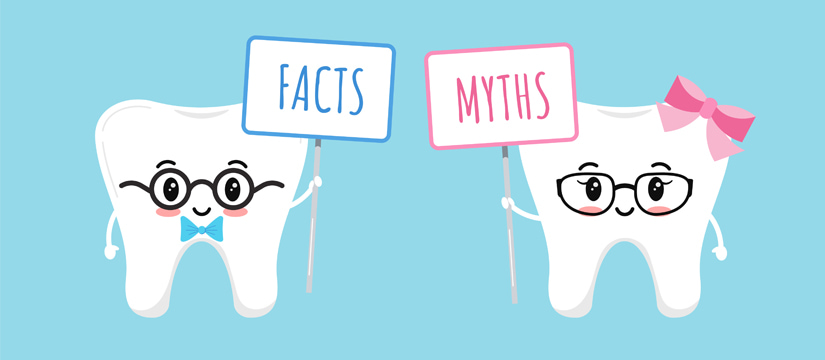August 7, 2024
Did you know that around 4 million people in the United States wear braces? And if you’re one of them, you might be wondering about getting a cavity with braces on. This common concern often leads to confusion and anxiety.
Today we’re taking a closer look into the relationship between braces and cavities, debunking myths, and offering practical tips to maintain excellent oral health while wearing braces.
Can You Get a Cavity with Braces?
The idea that braces cause more cavities is widespread. Many people believe this because braces make it harder to clean teeth properly.
Food particles can get stuck in the brackets and wires, leading to plaque build-up. This build-up can eventually cause cavities if not cleaned thoroughly.
But this doesn’t mean braces directly cause cavities. Instead, it’s the lack of proper oral hygiene that leads to dental problems.
Braces can make cleaning your teeth more challenging, but with the right tools and techniques, you can keep your teeth healthy.
It’s essential to understand that braces are designed to straighten teeth and improve oral health. When used correctly and with good hygiene practices, they don’t increase the risk of cavities.
Misconceptions arise because people may not know how to clean their teeth effectively while wearing braces. This lack of knowledge can lead to plaque build-up and cavities, reinforcing the myth.
Dental Braces Myths: Braces and Cavities
Braces themselves don’t cause cavities, but the brackets and wires can trap food particles and plaque. If not properly cleaned, this build-up can lead to cavities. Plaque is a sticky film of bacteria that forms on your teeth. When you consume sugary foods and drinks, the bacteria produce acids that can erode tooth enamel, increasing the risk of cavities.
This process can eventually lead to cavities. When you have braces, plaque can build up around the brackets and wires if not removed effectively.
Good oral hygiene can prevent this problem. Regular brushing and flossing are crucial. Using fluoride toothpaste and mouthwash helps strengthen tooth enamel and reduce the risk of cavities.
An electric toothbrush or a toothbrush with a small head can help clean around the braces more effectively. Flossing can be more challenging with braces, but tools like floss threaders and water flossers can make it easier.
Our orthodontists can provide detailed instructions on how to care for your teeth while wearing braces. Following these instructions is key to maintaining oral health.
Regular dental check-ups are also essential. Our orthodontist can help clean areas that are hard to reach and monitor your oral health throughout your orthodontic treatment.
Oral Hygiene Tips With Braces
Maintaining good oral hygiene with braces can be challenging, but it’s very important. Brushing your teeth after every meal is essential.
Use a toothbrush with soft bristles or an electric toothbrush designed for braces. Angle the brush to clean around the brackets and wires. Spend extra time on each tooth, ensuring all surfaces are clean.
Flossing is also necessary, though it might be more difficult with braces. Floss threaders can help you get the floss under the wires. Water flossers are another good option.
They use a stream of water to remove food particles and plaque from between teeth and around braces. These tools make flossing easier and more effective.
Mouthwash can help keep your mouth clean and fresh. Fluoride mouthwash can also help strengthen your teeth and prevent cavities. Swish it around your mouth for a minute after brushing and flossing.
Avoid sugary and acidic foods and drinks, as they can increase the risk of cavities. Choose healthy snacks like fruits, vegetables, and cheese, which are better for your teeth.
Good oral hygiene with braces takes extra effort, but it’s worth it. By following these tips, you can keep your teeth and gums healthy throughout your orthodontic treatment.
The Role of Orthodontists in Oral Health
Orthodontists play a significant part in maintaining oral health during braces treatment. We don’t just focus on straightening teeth.
We also help ensure your teeth and gums stay healthy. At each visit, we check for any signs of dental issues, like cavities or gum disease, and provide guidance on how to care for your braces.
Our orthodontists often recommend specific oral hygiene practices. They might suggest using special toothbrushes or flossing tools designed for braces.
Following our expert advice is crucial for preventing cavities and other dental problems. We can also offer tips on dietary choices that support oral health and won’t damage braces. We can also help to spot potential problems early and take steps to address them. This ongoing care helps prevent issues from becoming serious.
Achieve Better Orthodontic Health
So, as you can see, braces themselves don’t cause cavities. Proper oral hygiene and regular dental check-ups are key to preventing cavities with braces. By following the tips and advice given, you can maintain a healthy smile throughout your orthodontic treatment and beyond.
Whether you need braces, Invisalign, or another form of treatment, SouthShore Orthodontics always delivers top results. We’re proud to give our patients exceptional service in a welcoming environment. And it’s all personalized to each client.
Get in touch today to find out how we can help with your orthodontic journey!

